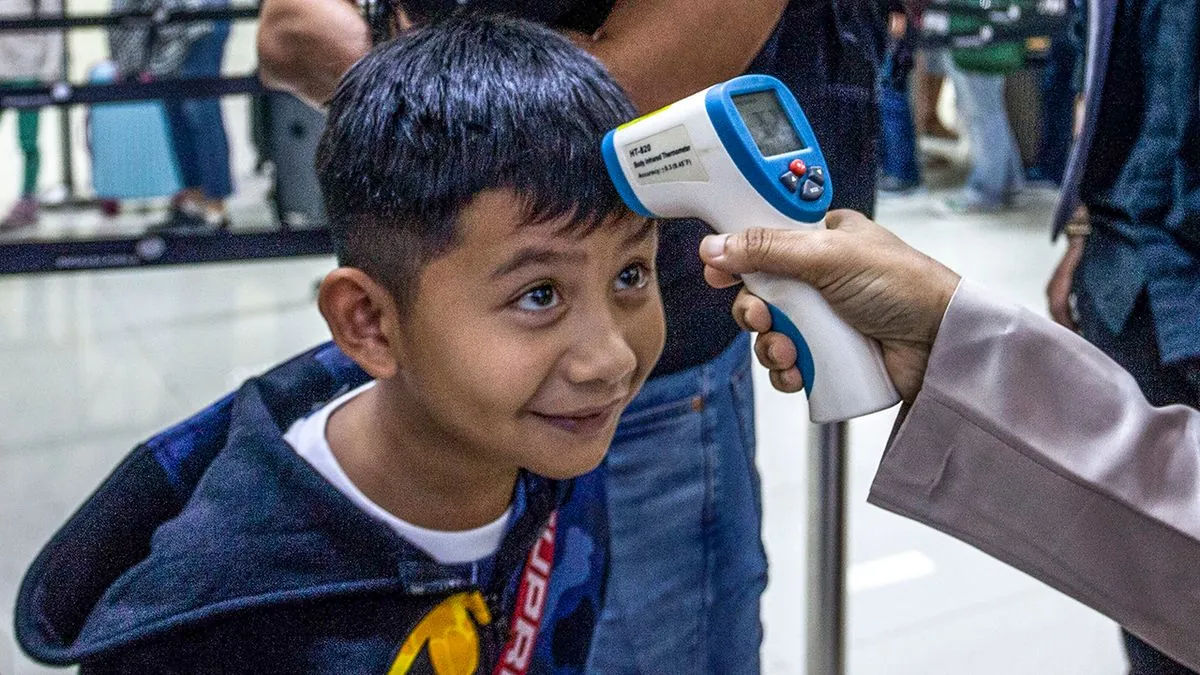Asian Nations Bolster Defenses Against New Mpox Variant as Thailand Reports First Case
Asian countries intensify border checks and vaccination efforts as Thailand identifies the first suspected case of a new, more dangerous mpox variant. The UK and EU maintain less stringent measures despite global concerns.

As concerns over a new, potentially more dangerous mpox variant grow, Asian nations are swiftly implementing heightened surveillance and preventive measures. This proactive approach comes in the wake of Thailand reporting the first suspected case of the clade 1b variant in Asia, prompting neighboring countries to reassess their preparedness strategies.
The World Health Organization (WHO) recently declared a public health emergency due to the rapid spread of the new mpox strain in Africa. This declaration has catalyzed a series of preemptive actions across Asia, deeply rooted in local pandemic response plans.
South Korea has taken decisive steps by deploying epidemiologists and public health doctors at arrival gates for flights from Ethiopia, a major African transport hub. The Korea Disease Control and Prevention Agency (KDCA) has identified eight high-risk countries, including Rwanda, Burundi, and Uganda. Passengers exhibiting mpox symptoms are required to report to quarantine officers upon arrival.
"We are implementing comprehensive measures, including monitoring aircraft toilet waste for the virus and distributing informational leaflets to raise public awareness."
Thailand's health authorities have quarantined a European man suspected of carrying the clade 1b variant, highlighting the effectiveness of their surveillance system. Professor Hsu Li Yang of Singapore's Saw Swee Hock School of Public Health emphasized the significance of this case, stating it exposes the "very real risk of clade 1b importations into Southeast Asia."

Taiwan has adopted a proactive stance by stockpiling vaccines and conducting targeted immunization campaigns. As of August 18, 2024, over 135,800 individuals have been vaccinated, with plans to immunize an additional 70,000 to 80,000 people by year-end. The country has also established a network of seven laboratories for virus testing and launched a public information campaign.
China announced on August 16, 2024, that it would begin monitoring people and goods entering the country for mpox over the next six months. Travelers from countries with virus outbreaks are required to declare their status to customs upon entry.
In contrast, the United Kingdom and European Union have maintained less stringent measures. While the UK government held a meeting to assess readiness for a potential outbreak, no updated travel advice or enhanced border surveillance has been implemented. The EU's Health Security Committee has ruled out imposing border controls, stating that the risk of a global mpox outbreak is still considered "low."
Professor Geoffrey Smith, an mpox expert at the University of Oxford, suggested that simple measures like health questionnaires or temperature checks could be easily introduced at UK entry points.
As the situation evolves, health authorities worldwide continue to monitor the spread of the clade 1b variant and assess its potential impact. The contrasting approaches between Asian nations and their Western counterparts highlight the diverse strategies employed in managing this emerging health concern.


































